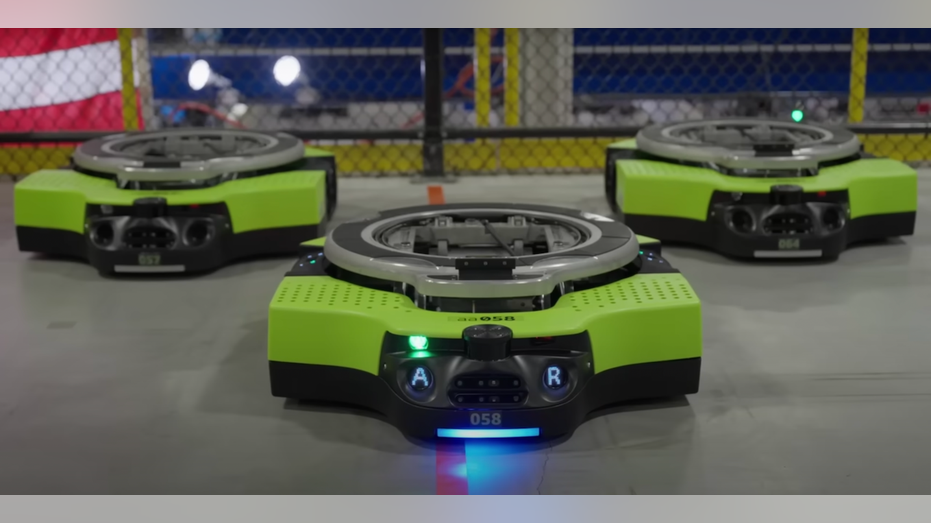Meet Proteus: Amazon's first 'fully autonomous' mobile warehouse robot
Amazon is also testing a sorting robot named Cardinal, which is expected to be deployed to fulfillment centers next year
Amazon has unveiled Proteus, the e-commerce giant's first fully autonomous mobile warehouse robot.
Proteus, which utilizes "advance safety, perception and navigation technology" to safely navigate around the company's employees, can lift and move GoCarts, a non-automated, wheeled transport used for carrying packages across its facilities.
"Historically, it’s been difficult to safely incorporate robotics in the same physical space as people," the company said in a blog post Tuesday. "We believe Proteus will change that while remaining smart, safe and collaborative."
Proteus will initially be deployed in the outbound GoCart handling areas in Amazon's fulfillment centers and sort centers. The company plans to eventually automate GoCart handling throughout its warehouse network to reduce the need for its people to manually move heavy objects and let them focus on other work.
BARACK, MICHELLE OBAMA DITCH SPOTIFY FOR AMAZON-OWNED AUDIBLE
In addition to Proteus, Amazon shared a glimpse of Cardinal, a robot that leverages advanced artificial intelligence and computer vision to sort the company's packages.
"Cardinal reduces the risk of employee injuries by handling tasks that require lifting and turning of large or heavy packages or complicated packing in a confined space," Amazon notes. "With Cardinal, package sorting happens earlier in the shipping process, resulting in faster process time in the facility."
Amazon is testing a prototype of Cardinal that can handle packages weighing up to 50 pounds. The company expects to deploy Cardinal in fulfillment centers next year.
It also showed off its AR ID system, which replaces manual bar code scanning using AI and a camera that runs at 120 frames per second, and its "containerized storage system," in which a robot delivers containers to employees to avoid reaching up, bending down or climbing ladders to retrieve items.
CLICK HERE TO READ MORE ON FOX BUSINESS
The latest developments come 10 years after Amazon acquired the robotics firm Kiva in 2012. Amazon, which has more than 52,000 robotic drive units, has denied speculation that it plans to replace its human employees, noting that it has added over a million jobs worldwide.
Last year, the company revealed it was testing Ernie, Bert, Kermit and Scooter, four other warehouse robots designed to reduce workplace injures. At the time, the company set a goal to reduce recordable workplace injuries by 50% by 2025.

Proteus (Amazon)
Amazon CEO Andy Jassy has committed to "systematically" solve the "top 100 employee experience pain points."
In a letter to shareholders in April, Jassy said Amazon's last public U.S. numbers showed the recordable incident rate for warehouse employees was 6.4 per 100 workers, higher than the average 5.5 per 100 workers among its peers, and 7.6 per 100 workers for its courier and delivery employees, below the average of 9.1 per 100 workers.
| Ticker | Security | Last | Change | Change % |
|---|---|---|---|---|
| AMZN | AMAZON.COM INC. | 179.17 | -2.11 | -1.16% |
Amazon, which invested $300 million in safety projects in 2021, notes that nearly 45% of its workplace injuries are related to musculoskeletal disorders, such as carpal tunnel syndrome, tendinitis, muscle strains and lower back injuries.
